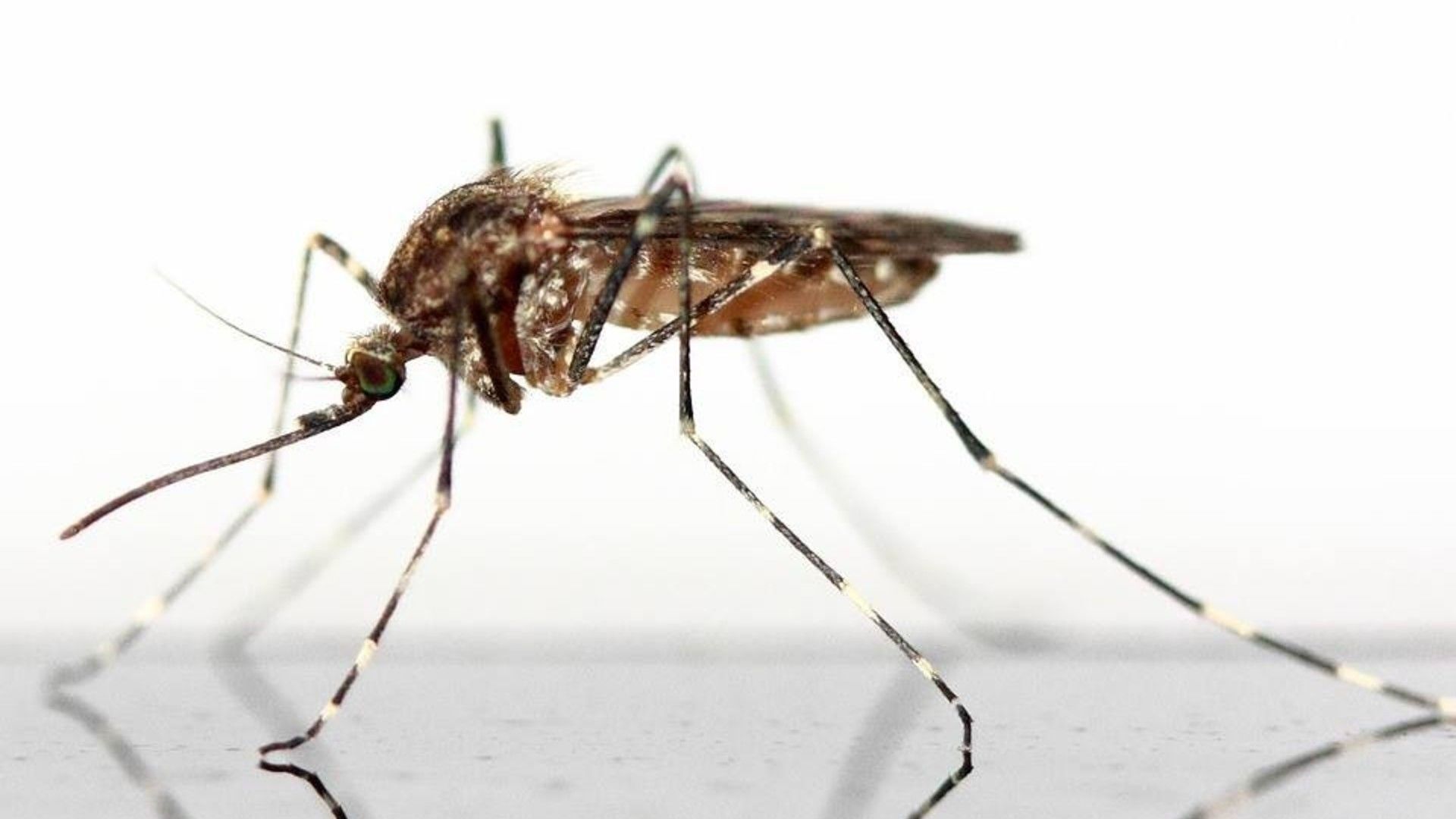https://sputnikglobe.com/20220716/japanese-encephalitis-claims-23-lives-in-indias-assam-since-april-reports-1097372705.html
Japanese Encephalitis Claims 23 Lives in India’s Assam Since April: Reports
Japanese Encephalitis Claims 23 Lives in India’s Assam Since April: Reports
Sputnik International
The mosquito-borne viral brain infection is commonly found in rural southeast Asia, the Pacific islands and the Far East. People are asymptomatic in most... 16.07.2022, Sputnik International
2022-07-16T11:59+0000
2022-07-16T11:59+0000
2023-02-14T12:24+0000
state of assam
health
mosquito bite
mosquitoes
mosquitos
infection
infection
https://cdn1.img.sputnikglobe.com/img/107962/88/1079628853_0:0:1920:1080_1920x0_80_0_0_c921ce4b6b157db9156f864fc7814205.jpg
After battling recent severe flooding, the Indian state of Assam is now witnessing an outbreak of Japanese encephalitis, a mosquito-borne viral brain infection.The deadly disease is caused by the Flavivirus virus and can infect both humans and animals.According to Assam’s National Health Mission, Japanese encephalitis has claimed the lives of as many as 23 people since April, with four from the flood-hit Moriggaon and Nalbari districts perishing over the last 24 hours. Mosquitos tend to reproduce quicker in wet conditions.Meanwhile, the National Health Mission report also claimed that at least 16 new cases of were identified in the state over the same time period.Four of the fresh cases were found in Nagaon, three each in Nalbari and Udalguri, two in Sivasagar, and one each in Barpeta, Kamrup (Metropolitan), Karbi Anglong East, and the Hojai district, taking the total number of cases to 160.Following the outbreak, the State Health Department has directed all district administrations to form a rapid response team and to take appropriate measures to combat both Japanese encephalitis and acute encephalitis syndrome (AES).In 2018, 277 people in the state lost their lives to the two illnesses, with 514 dying in 2019, 147 in 2020, and 131 in 2021.Want to know more? Check out our Koo & Telegram accounts!
state of assam
Sputnik International
feedback@sputniknews.com
+74956456601
MIA „Rossiya Segodnya“
2022
Rahul Trivedi
https://cdn1.img.sputnikglobe.com/img/07e5/05/12/1082926121_0:-1:627:627_100x100_80_0_0_d882e1a63f627c25b7a534fb8b8234d7.jpg
Rahul Trivedi
https://cdn1.img.sputnikglobe.com/img/07e5/05/12/1082926121_0:-1:627:627_100x100_80_0_0_d882e1a63f627c25b7a534fb8b8234d7.jpg
News
en_EN
Sputnik International
feedback@sputniknews.com
+74956456601
MIA „Rossiya Segodnya“
Sputnik International
feedback@sputniknews.com
+74956456601
MIA „Rossiya Segodnya“
Rahul Trivedi
https://cdn1.img.sputnikglobe.com/img/07e5/05/12/1082926121_0:-1:627:627_100x100_80_0_0_d882e1a63f627c25b7a534fb8b8234d7.jpg
state of assam, health, mosquito bite, mosquitoes, mosquitos, infection, infection
state of assam, health, mosquito bite, mosquitoes, mosquitos, infection, infection
Japanese Encephalitis Claims 23 Lives in India’s Assam Since April: Reports
11:59 GMT 16.07.2022 (Updated: 12:24 GMT 14.02.2023) The mosquito-borne viral brain infection is commonly found in rural southeast Asia, the Pacific islands and the Far East. People are asymptomatic in most cases, however, those with severe infection may experience neck stiffness, coma, and more rarely, permanent neurological complications or death.
After battling recent severe flooding, the
Indian state of Assam is now witnessing an outbreak of
Japanese encephalitis, a mosquito-borne viral brain infection.
The deadly disease is caused by the Flavivirus virus and can infect both humans and animals.
According to Assam’s National Health Mission, Japanese encephalitis has claimed the lives of as many as 23 people since April, with four from the flood-hit Moriggaon and Nalbari districts perishing over the last 24 hours. Mosquitos tend to reproduce quicker in wet conditions.
Meanwhile, the National Health Mission report also claimed that at least 16 new cases of
were identified in the state over the same time period.
Four of the fresh cases were found in Nagaon, three each in Nalbari and Udalguri, two in Sivasagar, and one each in Barpeta, Kamrup (Metropolitan), Karbi Anglong East, and the Hojai district, taking the total number of cases to 160.
Following the outbreak, the State Health Department has directed all district administrations to form a rapid response team and to take appropriate measures to combat both Japanese encephalitis and acute encephalitis syndrome (AES).
In 2018, 277 people in the
state lost their lives to the two illnesses, with 514 dying in 2019, 147 in 2020, and 131 in 2021.
Want to know more? Check out our Koo & Telegram accounts! 

